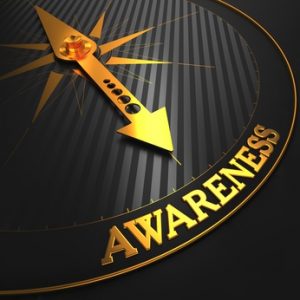 Learn from experience. There’s nothing wrong with failure. There’s nothing wrong in recognizing your strengths and weaknesses. How often do you hear people 50 or older say that they wish they had the wisdom they have now, when they were in their twenties. When we are aware of ourselves, we are most likely aware of others. And that ability to know how people will react is critical to good leadership. We can maximize the potential of our teams if we are able to reduce conflict, use competitive advantage and drive organizational effectiveness.
Learn from experience. There’s nothing wrong with failure. There’s nothing wrong in recognizing your strengths and weaknesses. How often do you hear people 50 or older say that they wish they had the wisdom they have now, when they were in their twenties. When we are aware of ourselves, we are most likely aware of others. And that ability to know how people will react is critical to good leadership. We can maximize the potential of our teams if we are able to reduce conflict, use competitive advantage and drive organizational effectiveness.
Take time to know who you are. Objectively, can you identify your strengths and weaknesses? It’s essential for a company to perform its own SWOT – identifying Strengths, Weaknesses, Opportunities and Threats. Performing your own personal SWOT is essential for identifying your self-awareness. Think about your trigger points – what sets you off and completely derails any other thoughts? How do you deal with criticism? And on the other hand, what inspires you?
STOP normal behaviors. If you’ve always “taken the bull by its horns” and barreled forward – without regard to the team or to other suggestions, put on the brakes. Instead, look around. Seek information from others who will be part of the development of the plan going forward. Indeed, surrender control and seek cooperation. The end result can be a more collaborative effort – one that is far more likely to succeed and one that you are more likely to enjoy.
Don’t wait. More often than not, individuals tend to think about self-awareness during periods of transition. During a career change, personal crisis or family emergencies, we often experience the need to re-evaluate our lives. But in truth, it’s important to be sensitive of our own changes, and the environment around us, even when life seems to be running smoothly. These ongoing assessments of ourselves help us become more fluid and flexible as our career and environment change.
Collect data. To develop an accurate self-assessment, we must collect data. We have to answer questions about our own personal qualities. Create a list for yourself that includes:
- Interests – both career-wise and personal.
- Values – make a list of what’s important to you, both in your career and in your personal life.
- Talents – objectively list your talents, not just hard skills learned through education, but soft skills learned through experience.
- Abilities – these are different from talents in that these are usually innate. You have natural abilities that make you suitable to different jobs and relationships.
- Lifestyle preferences – these are different for all of us. Some prefer to live in the suburbs; others would rather live in the city. What are your preferences?
Taking the time for self-exploration is key to adding value and control in your own life – regardless of age or organizational environment.
Personal development, including self-assessment and self-esteem, is an attainable goal for any organization. These skills are particularly important in today’s workplace as organizations demand flexible work environments. Leah M. Joppy and Associates offers various seminars on Personal Development. Please give us a call at (301) 670-0051 or email us at leah@lmja.com to discuss the needs of your organization.